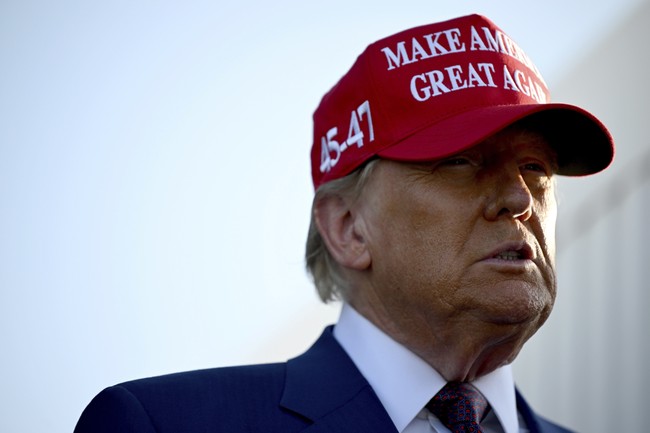Trump's Panama Canal Remarks Spark Heated Discussion
Donald Trump suggests reclaiming the Panama Canal, a move rooted in historical significance and current geopolitical tensions. The implications of this bold proposal extend beyond trade.
Published December 23, 2024 - 00:12am

Image recovered from redstate.com
The Panama Canal, an engineering marvel that transformed global shipping routes, is at the center of renewed controversy. Once again, former U.S. President Donald Trump has stirred the pot by proposing that the strategic waterway be returned to American control. This assertion, presented through a series of posts on his Truth Social platform, reflects Trump's consistent 'America First' ideology.
Constructed in the early 20th century, the Panama Canal symbolizes American ingenuity and international ambition. It played a pivotal role in asserting the United States as a global military and economic powerhouse. With over 70 percent of its transits catering to U.S. ports, Trump emphasizes its crucial role for American commerce, accelerated naval deployment, and broader economic interests.
The canal's control was transferred from the United States to Panama in 1999, marking a dramatic shift in its administration under the Torrijos-Carter Treaties signed in 1977. However, Trump criticizes this historical decision, labeling it a 'foolish' move by then-President Jimmy Carter to relinquish such a significant asset for one dollar. The change in management, according to Trump, was meant solely for Panama and not for any other nation, insinuating concerns about China's influence over the canal's operations.
Concerns extend beyond foreign involvement. Trump has vocally criticized the tariffs imposed on American vessels, describing them as exorbitantly high and unfair. In his view, this constitutes a 'complete rip-off' orchestrated under the guise of sovereign management by Panama. Such economic burdens, he argues, undermine the historical 'generosity' expressed by the U.S. during the canal's construction and handover.
The geopolitical implications of Trump's statements cannot be overstated. If enacted, demanding the return of the canal could lead to significant diplomatic friction between the U.S. and Panama. There's also the challenge of asserting such a demand against a sovereign state backed by binding international treaties. While Trump's rhetoric is potent, the legal feasibility of reclaiming the canal is fraught with challenges, as the 1977 agreements constrain U.S. actions to defense rather than administration.
Globally, Trump's comments have invited varied reactions. Some view them as a justified assertion of American interests, while others regard them as a belligerent overreach by a previous administration seeking to rewrite history. Critics from within the U.S. and abroad suggest that such a stance might destabilize regional partnerships, essential for maintaining hemisphere-wide security and economic cooperation.
In summary, the remarks from Trump about the Panama Canal reflect complex layers of historical pride, national interest, and strategic foresight. While the canal physically cuts through Latin America, its significance cuts across global lines of diplomacy and commerce. Whether this proposal makes it beyond rhetoric remains in doubt; however, it has successfully reset the dialogue on America's role in this storied passageway.






